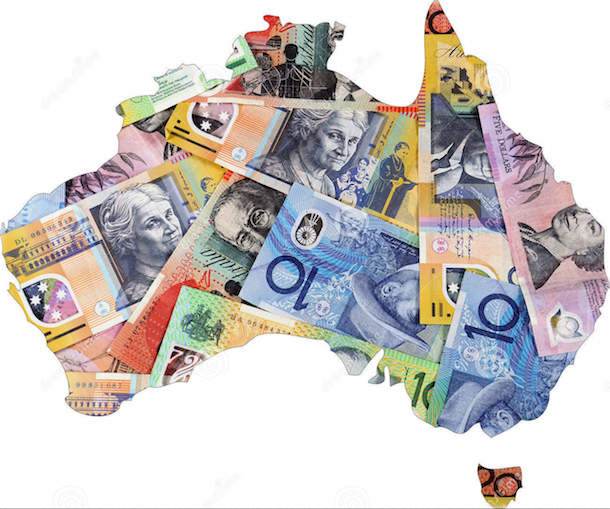31 August 2016
By Warwick Smith
The prime minister, Malcolm Turnbull, has labelled government budget deficits and debt as a “massive moral challenge”. This, to use the technical term, is complete and utter bollocks. In a leaked briefing to coalition backbenchers, Malcolm Turnbull wrote:
This is a fundamental moral challenge. How long are we prepared as a nation, as a generation, to load more and more debt on to the shoulders of our children and grandchildren? How long are we prepared to live beyond our means, to live effectively on the credit card of the generations that come after us?
The assertions that sit behind this paragraph are all flawed. Are we living beyond our means? No. Are we living off the credit card of future generations? No. Does Australian government debt rank alongside other identifiable major moral challenges of our time? Absolutely not. Let’s take them one at a time.
We are living beyond our means
The logic that persistent government deficits mean that the nation is living beyond its means is faulty in several respects.
We could eliminate all superannuation concessions for high income earners, get rid of negative gearing and the concessional treatment of capital gains, not give the planned tax cuts to high income earners, and not give the planned tax cuts to companies and we’d more than balance the budget. Given that, how can it be claimed that we’re living beyond our means? This is an accounting issue, not a fundamental economic problem.
Even if Scott Morrison’s nightmare scenario comes true, and we end up with $1tn of debt, that would be like a salary earner on $100,000 having a debt of a little over $200,000. It’s a significant number but a long way from insurmountable (particularly for the entity that creates the currency). It’s even less scary when you realise Scott Morrison was using the old trick of using gross debt rather than net debt as a poorly disguised way to inflate the figures.
Future generations will suffer under the burden of our debt
Our economy has been so thoroughly financialised that many find it very difficult to see the real economy for all the money. The living standards of the population are determined by the goods and services that the population is able to produce. Seems pretty straight forward, doesn’t it?
How exactly then, do we imagine future generations will suffer as a result of us living on their credit card? As Warren Mosler is fond of asking, can they send goods and services back in time to repay the debt we have incurred? Of course not, it’s a ludicrous notion. Their standard of living will, like ours, be dependent on their capacity to produce goods and services.
The only way future generations will suffer as a result of our debt is if it’s in a foreign currency (it’s not) or if economically illiterate politicians make them suffer.
As an illustration, the period of highest government debt to GDP in our nation’s history was at the end of the second world war. Have you heard all the stories about how the post war generations suffered under the burden of all that debt? No? Me neither. Those post-war decades are often referred to as the “golden years” with unemployment hovering around 2% (somehow thought impossible now) and economic growth consistently strong.
The deficit is a fundamental moral challenge
Given all of the above, can we really conclude that the budget deficit is a fundamental moral challenge? Here’s a small sample of other possible candidates for fundamental moral challenges:
Syria
The prolonged civil war in Syria is resulting in untold death, suffering and displacement. Should we be taking a moral stand on this situation? Should we be doing more to help those displaced?
Same sex marriage
Here’s a moral challenge, one that asks some fundamental human rights questions. Where’s Turnbullâ’s strong leadership on this one?
Climate change
Let’s face it, Kevin Rudd was right about climate change – till it was dropped like a hot potato, that is.
Inequality
Definitely one of the great moral challenges of our time is the gulf in wealth and resources between wealthy nations and poor nations as well as the growing gap between wealthy individuals and the poor within Australia. Can we call ourselves a democracy and a meritocracy when there are great disparities in educational opportunity and healthcare? Should a child born to poor parents have the same opportunities as one born to rich parents? There’s a moral challenge worth sinking your teeth into, prime minister.
No need to jump at economic shadows.

